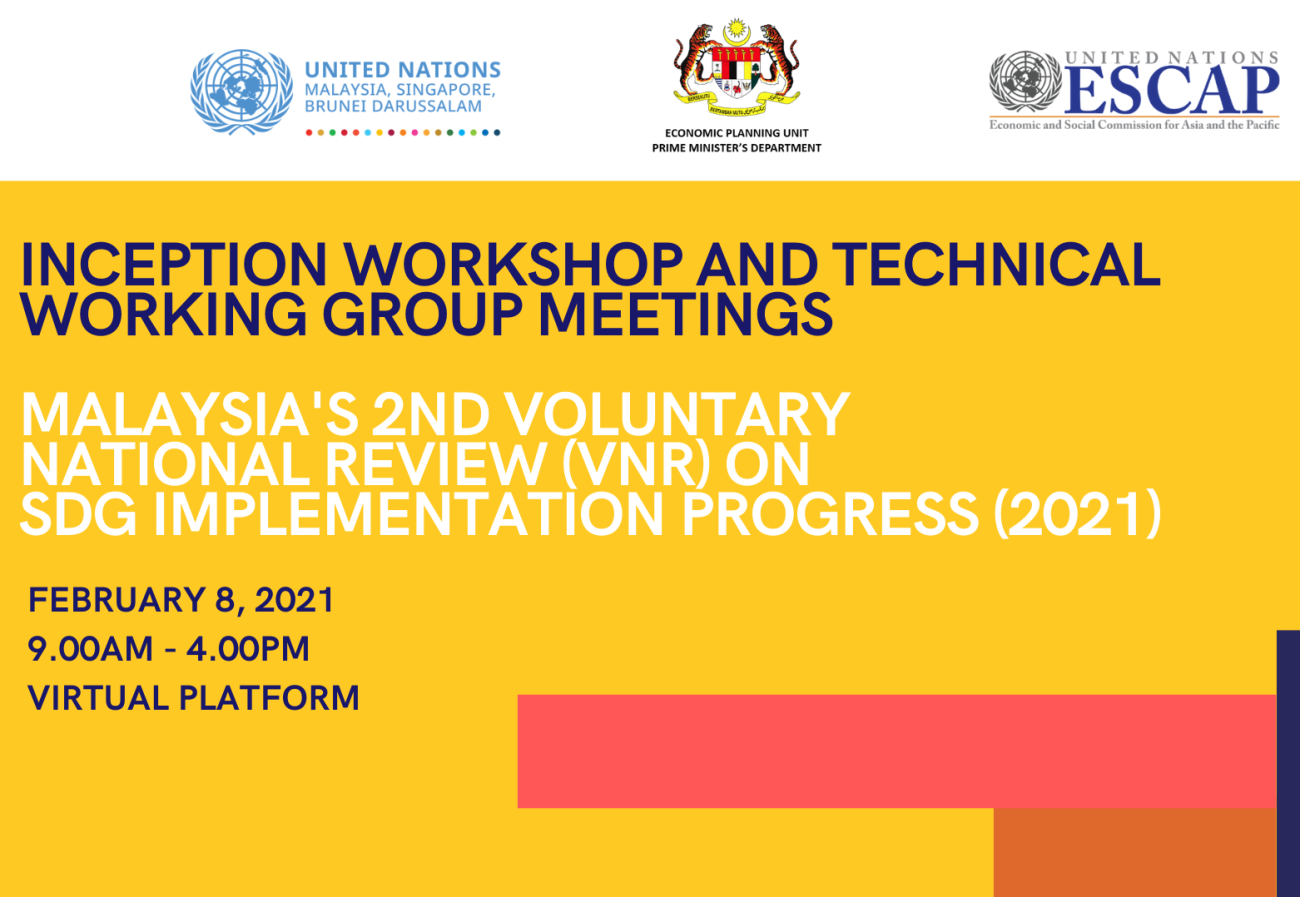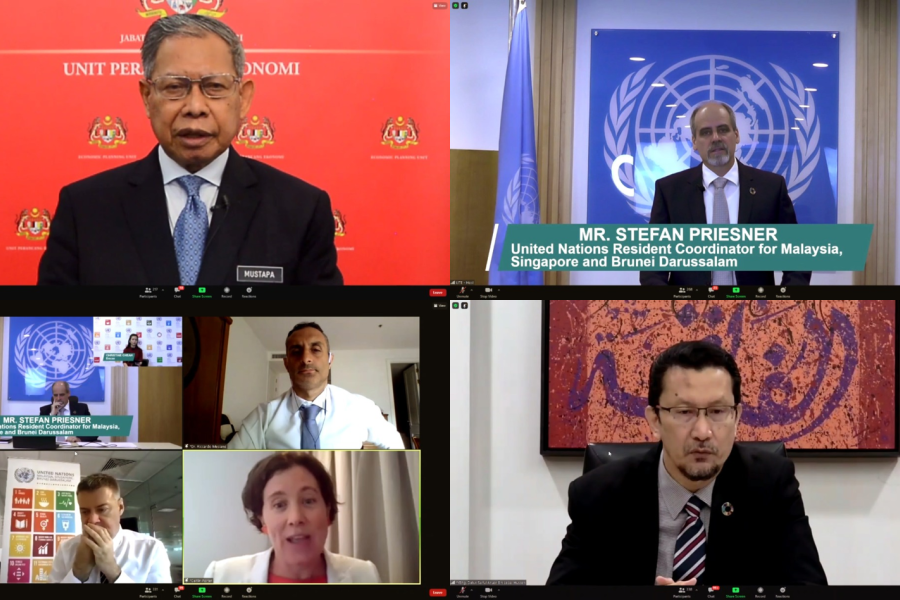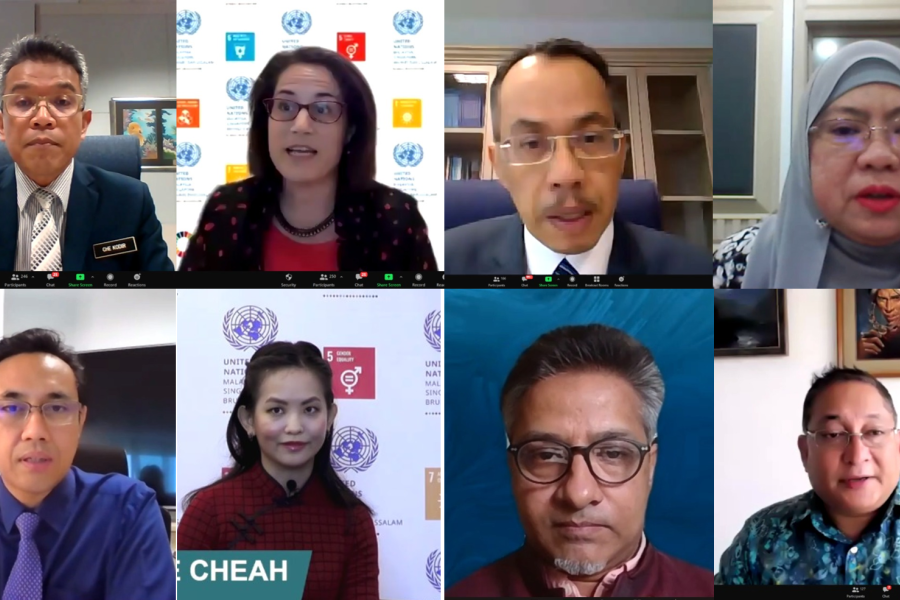Malaysia’s second Voluntary National Review (VNR) 2021

Inception Workshop and first meetings of multi-stakeholder Technical Working Groups (TWGs)
On February 8, 2021, over 350 participants comprising government ministries and agencies, local authorities, civil society, private sector, academia as well as UN agencies, funds and programmes participated in the Inception Workshop and first meetings of multi-stakeholder Technical Working Groups (TWGs) for the preparation of Malaysia’s second Voluntary National Review (VNR) 2021.
Malaysia is among 25 out of 44 countries, that will present their second VNR at the United Nation’s High-Level Political Forum (HLPF), in July this year. As stipulated in paragraph 84 of the 2030 Agenda General assembly Resolution, regular reviews by the HLPF are to be voluntary, state-led, undertaken by both developed and developing countries, and involve multiple stakeholders. The HLPF provides a platform to facilitate the sharing of experiences, including successes, challenges and lessons learned and to mobilize multi-stakeholder support and partnerships for the implementation of the Sustainable Development Goals.

YB Dato' Sri Mustapa bin Mohamed, Minister in the Prime Minister's Department (Economy) in his welcome remarks said “In support of the global monitoring and reporting of the 2030 Agenda, Malaysia took pride in presenting a VNR, at the 2017 global HLPF and is committed to undertake broader country reporting every four years. The first VNR report heavily focussed on how Malaysia continuously embraced sustainable development in the national socio-economic agenda. As Malaysia’s first VNR was more inclined towards government’s initiatives, we intend for the second VNR to be more inclusive and adopt the ‘whole-of nation’ approach - an approach that will include everyone in this ‘virtual room’, to develop a more comprehensive report.”
The UN in Malaysia was happy to support Malaysia’sfirst Voluntary National Review (VNR) report in 2017 on the theme “Eradicating poverty and promoting prosperity in a changing world”, which focussed on how Malaysia has embraced sustainable development in its national socio-economic agenda.
Stefan Priesner, United Nations Resident Coordinator for Malaysia, Singapore and Brunei Darussalam acknowledged the efforts of Government in ensuring a participatory approach in the preparation of its second Voluntary National Review and its efforts to accelerate SDG achievement.
He added, “The UN is also supporting the Government in drafting another SDG Roadmap and an Integrated National Financing Framework. These should be seen as linked to the VNR and will be ideal mechanisms to detail the follow up to further accelerate SDG achievement. Furthermore, I commend the government for making efforts to align its development planning and national budgeting to the 2030 Agenda and SDGs; linking recommendations from its Universal Periodic Review to the SDGs; and to the six local governments (Shah Alam, Alor Gajah, Kuala Lumpur, Subang Jaya, Putrajaya and Melaka City) for taking forward their Voluntary Local Reviews.”

The inception workshop and TWGs discussed the thematic issues of the 2021 VNR which paved the way for the opportunity to consult and hear from different stakeholder voices on the SDGs and VNR to gain broad perspectives on SDG performance, gaps and challenges as well as on the means of implementation.
Inputs from civil society and the private sector is equally important as the SDGs cannot be achieved by governments alone. Stefan Priesner added, “I applaud the efforts of civil society and academia who have organised themselves to support the mainstreaming, implementation and solutioning for SDG attainment and to the many government-linked companies, private business entities and Financial Institutions who are working on aligning their operations, investment-decisions and corporate social responsibility activities to the SDGs.”

















